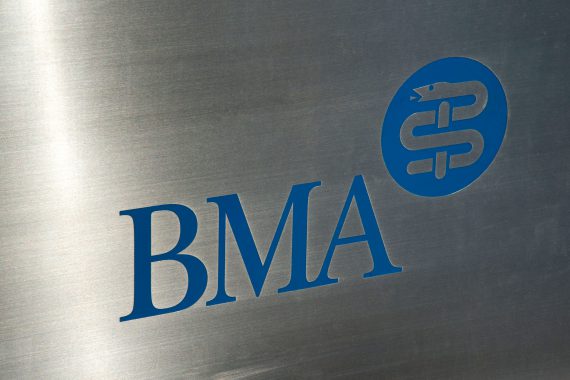Clearing the backlog of elective care to ‘more manageable’ levels could take up to a decade, a BMA report has warned.
The BMA’s pandemic recovery report said that the Government must be ‘honest’ with the public about the need for a ‘realistic approach to restoring non-Covid care’.
It said: ‘The BMA has estimated that even if the NHS were to run at 110% of its pre-Covid capacity, it could take up to five years to reduce the backlog of elective care in England back down to (already high) 2019 levels.’
And with elective activity at 110% of 2019 levels, it would take ‘up to a decade to return to more manageable levels’, it added.
According to the report, three million fewer elective procedures have taken place in England since April 2020 than expected, based on 2019 levels.
The number of patients waiting over a year for treatment in England has also risen ‘significantly’ to a ‘13-year high’ of 185 times its 2020 value, it said.
And waiting lists for ‘non-urgent’ hospital treatments in Wales have hit a ‘record high’ of nearly 540,000 patients, with those waiting more than 36 weeks increasing by 728% from January 2020 to February 2021, it added.
Meanwhile, the Government must ‘ensure that new initiatives are not introduced in general practice to avoid further disrupting the re-start of non-Covid services’, the report said.
It added: ‘GP practices are still facing increased workloads due to clinical pathways being closed and patients therefore returning to visit their GPs, and GPs are having to spend more time caring for patients with resolvable conditions than would previously have been the case.
‘Support to safely increase non-Covid care must therefore cover both secondary and primary care and encourage clinicians across the NHS to work together.’
BMA council chair Dr Chaand Nagpaul said: ‘It’s clear that the backlog has to be reduced, but forcing doctors to just “get back to normal” without respite and support is not the way forward and endangers patient safety and staffing ratios now and in the longer run.
‘While some, exhausted and burnt out, might take more sick leave, others may decide to leave the NHS altogether – talented, committed healthcare professionals that embody everything our health service stands for.’
He added: ‘Fundamentally, asking too much of doctors too soon could not just have a detrimental impact on patient safety, it could potentially increase already lengthy waiting times – something both patients and doctors desperately want to avoid.’
Published earlier this month, the report outlined a set of recommendations including:
- Time for staff to ‘rest and recuperate’;
- ‘Better movement’ of staff between primary and secondary care;
- The abolishment of the national performers’ list;
- Introducing the option for trainees to take a ‘break from training’ without resigning altogether
It comes as new NHS England planning documents have suggested that GPs could be asked to review hospital waiting lists for elective care from April and formalised plans for GPs to manage more patients in primary care.
In September, NHS England indicated it wants to ‘maximise opportunity’ in the management of patients in primary care via advice and guidance services to keep patients away from hospitals.
Meanwhile, NHS England board papers last week revealed that practices are delivering one million more GP appointments per week than before the pandemic.
Pulse July survey
Take our July 2025 survey to potentially win £1.000 worth of tokens













As morale goes down, the dumb business of referrals go up. You cannot win. But the business boys win paradoxically. And that’s sweet pickings for the waiting private providers. Drive the waiting list up and contracts go out.